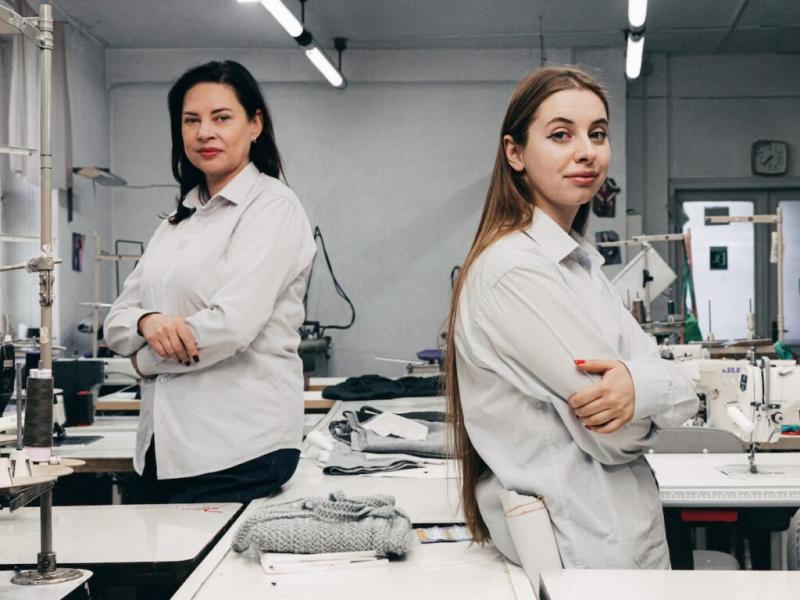

Three years into the war in Ukraine, the toll on women and girls remains staggering. As the conflict drags on, it is women and girls who continue to bear the heaviest burdens – displacement, economic instability, heightened risks of gender-based violence, and the daily struggle to keep families safe in the face of repeated attacks.
Despite this, women are not just enduring the crisis – Ukrainian women and the grassroots organizations they lead are mobilizing their communities to lead the response on the front lines. Across Ukraine and neighboring Moldova, women and their civil society groups are providing life-saving aid, protecting the most vulnerable, and rebuilding the social fabric of war-torn communities. Enabling and supporting them is key to any semblance of peace or recovery.
Supporting the transformational work of these organizations has been at the heart of the work of the United Nations Women’s Peace and Humanitarian Fund (WPHF) in Ukraine and Moldova since April 2022. As part of this regional response, WPHF has not only funded immediate humanitarian relief, but also promoted the protection of women and girls, boosted their political participation, and contributed to their long-term resilience and economic recovery.
The powerful stories of WPHF and UN Women civil society partners – women peacebuilders, humanitarians, and human rights defenders working tirelessly across Ukraine and Moldova – make a compelling case for why investing in women’s frontline efforts is so essential to build a lasting and durable peace for all.
“What kind of underwear are our women soldiers wearing?” This question led two Ukrainian lawyers, Iryna Periv and Iryna Andrusiak, to create Yarii Lingerie, a brand of women’s lingerie “created by and for women,” with a deep understanding of their needs and a focus on comfort and confidence.
Three years ago, when Russia launched its full-scale invasion of Ukraine, women and men joined combat with little notice or preparation. Female soldiers had to use men’s ill-fitting uniforms and equipment, including underwear, on the battlefield. It slowed them down and caused multiple health issues.
Equipped only with a household sewing machine and a small supply of fabric and tools, Periv and Adrusiak started to sew.
But everything changed when they received a grant from WPHF to participate in a training organized by The National Network for the Development of Local Philanthropy, a local civil society organization based in Kyiv, in partnership with UN Women Ukraine.
“This funding became our starting capital. We bought high-quality fabrics and the sewing machines we needed. And those machines are incredible! Participating in this project was key to shaping our business-focused approach,” said Periv in a recent interview with Marie Claire Business Ukraine.
In addition to financial support, the grant provided both entrepreneurs with the mentoring and networking opportunities they needed to expand their project and explore new target groups, including teenagers, older women, and those who have undergone a mastectomy. Today, Periv and Andrusiak continue to think creatively about advancing women’s rights through garments, exploring innovative ways to protest the war, fight oppression, and crush gendered stereotypes – even using corsets as manifestos.
“Our goal is to make lingerie about health, not sexualization. We aim to create a collection that is comfortable for everyone,” added Periv.
Since the early days of the war, LAMPA – a refugee-led organization working with youth in Snovsk, a town in the Chernihiv Oblast – has been providing feminine hygiene kits to internally displaced women and girls as part of a project funded by WPHF and supported by UN Women Ukraine. LAMPA has also created several safe spaces for refugee women in a local library, where they can get career guidance, media literacy, and legal advice.
To read the full article head over to its original place of publishing wphfund.org